How Merlin star Colin Morgan is returning to his Irish roots
- Published
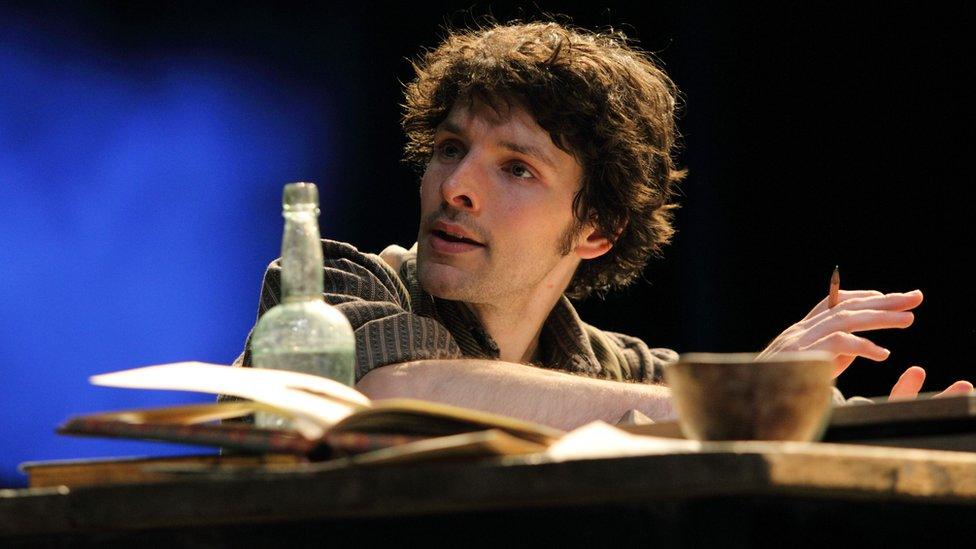
Colin Morgan, known for BBC drama series Merlin, stars in Translations as the son of a teacher
First performed in 1980, the play Translations, about the arrival of British army mapmakers in 1830s Donegal, has earned the status of a modern classic. Now, London's National Theatre is boldly reviving the drama with Irish stars Colin Morgan and Ciaran Hinds, at a time when the border between Northern Ireland and the Irish Republic is again very much a hot and contentious issue.
Hinds remembers his first encounter with the work of the playwright Brian Friel, when he was a teenager in Belfast.
"I was in the Rosemary Drama Group and we did a two-part play of his called Lovers - Winners and Losers. It was the first time I'd really heard Brian's name, long before he became so well-known around the world."
Hinds went on to become one of Northern Ireland's best-known actors, taking screen roles that range from a BBC version of Persuasion to the film of Tinker Tailor Soldier Spy.
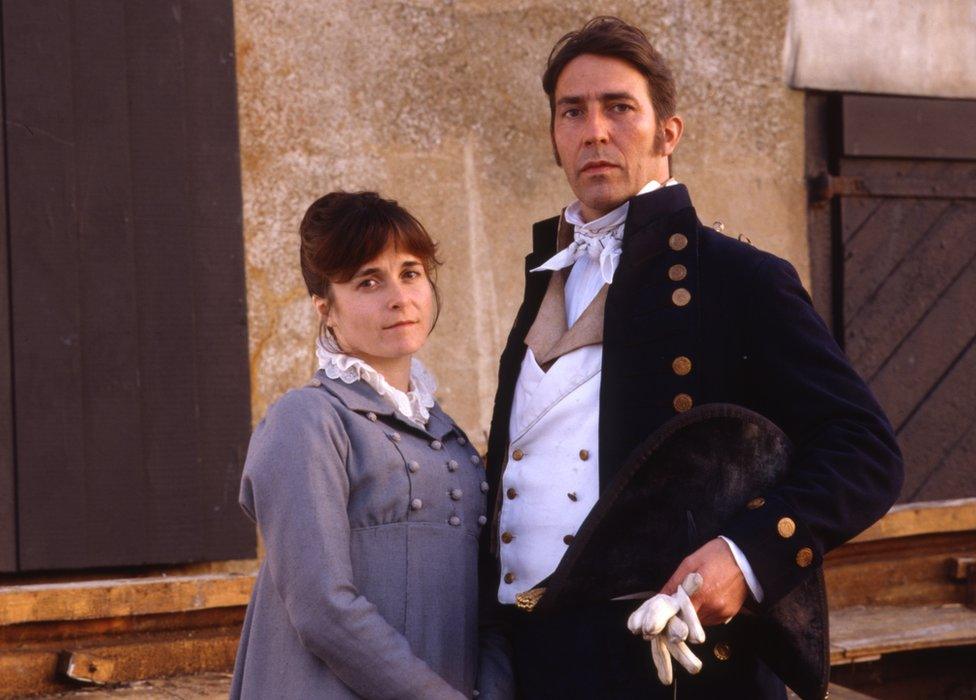
Ciaran Hinds lists the BBC TV adaptation of Persuasion among the historical dramas on his CV
Friel died three years ago, at the age of 86. Plays such as Translations, Faith Healer and Dancing at Lughnasa earned him an international reputation no modern Irish playwright rivals. Born in Northern Ireland, Friel spent the second half of his life across the border in Donegal, in the Irish Republic.
In Translations, Hinds plays a country teacher, external. His son is played by Colin Morgan, who when he was barely into his 20s temporarily shed his Armagh accent to become a star in the BBC's drama series Merlin.
"The play was written before I was born," says Morgan, "with the north of Ireland I'd say in its worst years of violence. I'm sure Brian - who I never met - wanted to write about what had led to the terrible situation in the 1970s and 1980s.
"But there's also a universality to what he wrote - it's not only about one era or one place. It's why people love his work."
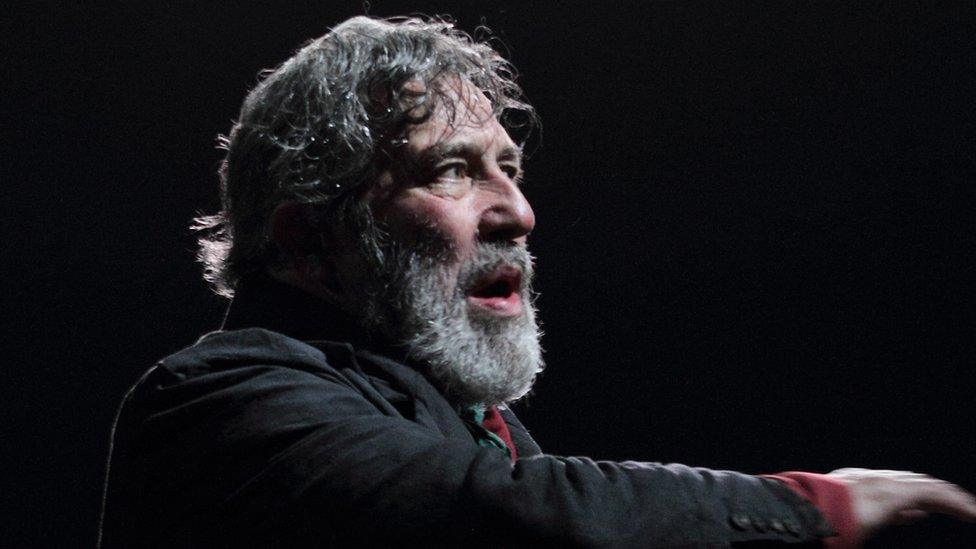
Ciaran Hinds thinks the historical border issues of the play will strike a chord with today's audience
In the play, English soldiers are in Donegal partly to map it and to identify and translate Irish place names. Hinds says echoes of today's political anxieties inevitably have come up in rehearsal.
"The Brexit referendum and the effect it's having in Ireland means a story about drawing maps and lines across the north of Ireland is going to have an extra resonance with audiences," he says.
"I don't know if the National Theatre had that in mind initially - certainly the director Ian Rickson told us he'd wanted to do the play for a very long time.
"It will speak to people of many different persuasions and cultures. The word 'border' actually only comes into it in the last page or two. But Brian Friel was looking at our human interest in - and maybe need for - borders and divisions of all sorts, including in our own minds. Are we imprisoned by them or are they open?"
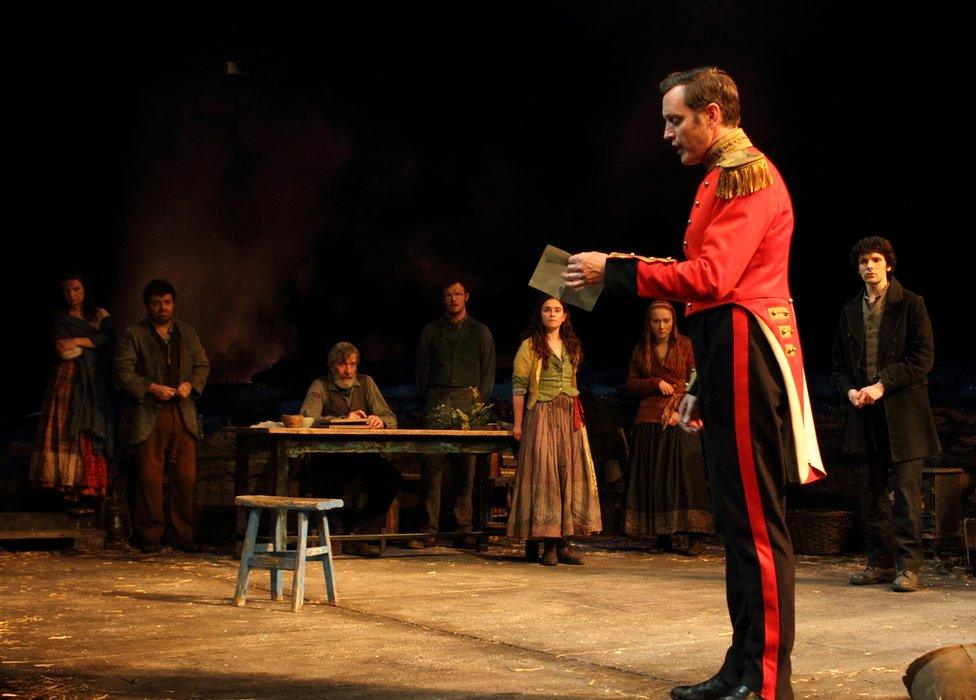
The use of language is key to the play
Morgan thinks Brexit means some of Friel's lines might now play differently to how they would have even a couple of years ago.
"But that's a good thing. It's the legacy of great work that audience responses will change over the years. It will ring through differently for every generation.
"A large part of the play is about language and how we communicate. It's Brian's mastery of language which means there's a meaning there which will still grip people in another 40 years, whatever has happened by then politically in Ireland."
Though both actors are Irish, they've been working on their Donegal accents. Hinds says the difference between how he grew up speaking in Belfast and the speech of the rural North West is "close but far".
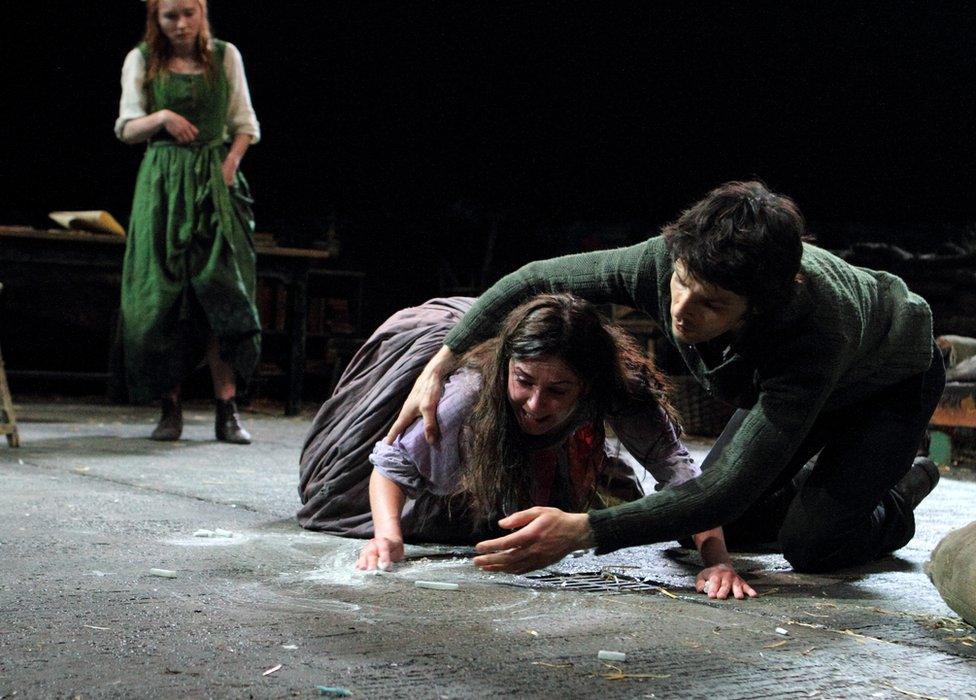
Merlin star Colin Morgan says working on such a different production is a welcome challenge
"We've been working with a fantastic voice-coach called Majella Hurley. And she has taken a group of actors from all over Ireland and made us sound Donegal, which is a real achievement."
Morgan uses the word orchestration to describe Friel's way with language. "It's like he's written it as a music score."
Hinds says: "There's a music deep inside the language. And if you find the rhythm, it will tell you so much. He's a great writer for the stage, in the way Chekhov was."
So did Morgan relish stepping out of Merlin, a big teatime telly hit, to tackle the complexities of all the stage-work he's done since?
"Acting is about progression and change and diversity. As an actor, you're always searching for the next challenge. So, anything that pushes you and allows you to be passionate and work with passionate people - that's exactly the sort of arena I want to be in."
Translations is on at the National Theatre now.